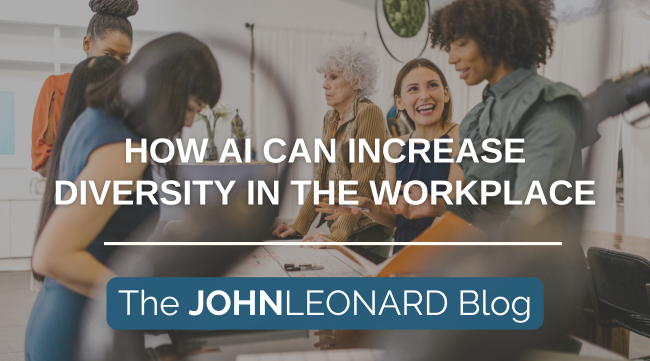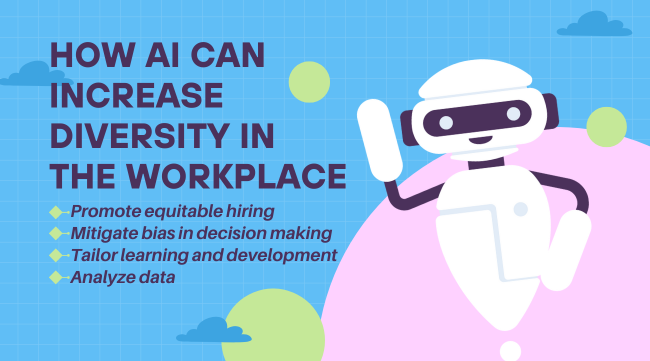
In today’s ever-changing world, artificial intelligence (AI) continues to revolutionize and reshape the landscape of workplace dynamics. AI has taken the business world to new heights over the past two years. Its positive impacts on innovation, speed to market, and everyday decision making are, of course, well known when it comes to redefining how people work. What’s less recognized is that AI also offers many opportunities to transform inclusion and diversity in offices around the world. These tools are widely used in support of corporate DE&I initiatives while reducing human choice bias and other activities that transcend race and gender.
The Value of AI in Hiring Processes
Artificial Intelligence has taken the business world by storm in the past year. As many organizational initiatives continue to focus on enhancing the workplace, leaders are seeing the tremendous value and benefit of AI technologies when it comes to talent sourcing, resume screening, job matching, and candidate interviews. When used intentionally, these tools can help reduce unconscious bias, promote more equitable hiring practices, and support greater diversity across teams.
Mitigating Bias in Decision Making
One of the biggest challenges organizations face in advancing workplace diversity is addressing unconscious bias in hiring decisions. AI-powered job optimization tools, such as Textio and Ideal, play a significant role in mitigating these biases, both in recruitment processes and throughout everyday workplace interactions.
Learning and Development With the Help of AI
The growth of AI-powered learning and development platforms has provided organizations with tools that offer personalized learning experiences tailored to individual needs, preferences, and learning styles. These platforms leverage algorithms to analyze employee behavior and performance, enabling them to recommend targeted content, resources, and training modules that boost engagement and overall effectiveness in the workplace.
Data Driven Insights
There are many AI platforms out there that can strategically analyze employee surveys and feedback forms, along with other workplace data, to identify the areas an organization can improve its diversity and inclusion efforts. The data-driven approach allows for organizational development in which leadership can develop targeted initiatives and track progress toward its diversity goals.
The Ability to Foster Inclusive Communication
AI-powered tools provide the ability to ensure that employee communication is accessible and inclusive to all. As an example, there are many chatbots that can provide streamlined and consistent information to all employees regardless of their language or communication style. The AI analytics produced allow employers to identify potential communication barriers and, in turn, recommend improvements.

AI has already begun transforming DE&I initiatives in the workplace by fostering inclusion, mitigating biases, and promoting equity. However, recognizing its full potential requires an across-the-board, concerted effort within all levels of an organization. By embracing responsible AI implementation practices and harnessing a culture rooted in diversity and inclusion, companies can harness the power of AI to create a more diverse, equitable, and inclusive workplace for all.
For more ways to improve representation, belonging, and accessibility in your organization, subscribe to The JOHNLEONARD Blog below!
